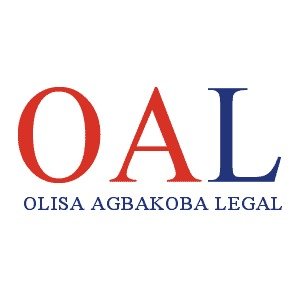Best Private Equity Lawyers in Apapa
Share your needs with us, get contacted by law firms.
Free. Takes 2 min.
List of the best lawyers in Apapa, Nigeria
About Private Equity Law in Apapa, Nigeria
Private equity involves investment opportunities where capital is provided to private companies or invested in public companies to delist them from stock exchanges. In Apapa, the commercial and port district of Lagos State, private equity is a growing market. Investors target sectors such as shipping, logistics, oil and gas, manufacturing, and infrastructure, given Apapa's economic significance. Private equity transactions in Apapa often involve complex legal structures, cross-border elements, and compliance with both national and state regulations.
Lawyers specializing in private equity in Apapa provide crucial support for investors, venture capitalists, fund managers, and businesses seeking funding. They navigate multi-step transactions, assist with regulatory compliance, draft contracts, and help mitigate risks unique to this bustling port area.
Why You May Need a Lawyer
Private equity transactions often involve large sums of money, multiple parties, and intricate legal frameworks. Here are some reasons you might need a private equity lawyer in Apapa:
- Due diligence on target companies to uncover potential legal or financial problems
- Drafting and reviewing investment agreements, shareholders agreements, and joint venture contracts
- Negotiating terms between investors, business owners, and other stakeholders
- Ensuring compliance with Nigeria's federal and state laws governing foreign investments, company structures, and sector-specific regulations
- Advising on tax implications of investments and exit strategies
- Obtaining regulatory approvals from agencies like the Securities and Exchange Commission (SEC) and the Nigerian Investment Promotion Commission (NIPC)
- Dispute resolution and enforcement of agreements if conflicts arise post-transaction
Legal advice is important to protect your investments, avoid lawsuits down the line, and stay compliant with local, state, and federal regulations.
Local Laws Overview
Private equity in Apapa operates under the legal framework of Nigeria, with some specific local considerations for Lagos State and commercial activities in Apapa. Key laws and regulations that impact private equity include:
- Companies and Allied Matters Act (CAMA) 2020 - Governs company incorporation, management, shareholding, and record-keeping standards.
- Investment and Securities Act (ISA) 2007 - Regulates activities related to investments, fund management, and securities offerings under the watch of the Securities and Exchange Commission.
- Lagos State Laws - Certain taxes, fees, and operational permits are governed by Lagos State regulations.
- Foreign Exchange and Capital Importation Regulations - Supervised by the Central Bank of Nigeria, these affect how foreign investors and funds operate.
- Sector-Specific Regulations - For ports, shipping, oil and gas, and logistics, sectoral regulatory bodies (like the Nigerian Ports Authority) may have relevant compliance requirements.
Working in Apapa requires particular attention to federal regulatory filings, sector-specific licensure, and local government taxes or levies.
Frequently Asked Questions
What is private equity?
Private equity refers to investment in companies that are not publicly traded on a stock exchange. These investments are typically made by private equity firms, funds, or angel investors looking for high returns by investing in or acquiring businesses.
What types of businesses attract private equity in Apapa?
In Apapa, sectors such as shipping, logistics, oil and gas services, port infrastructure, and manufacturing often attract private equity due to the area's commercial importance and constant demand for capital and modernization.
Do foreign investors need special approvals to invest in Apapa?
Yes, foreign investors usually need approvals from the Nigerian Investment Promotion Commission, comply with the Central Bank of Nigeria's capital importation requirements, and may need sectoral permits depending on the business type.
Is it necessary to conduct due diligence before investing?
Absolutely. Legal and financial due diligence helps investors understand the target company's risks, liabilities, ownership structures, and compliance status before closing a deal.
What is a shareholders agreement and why is it important?
A shareholders agreement is a contract between a company's shareholders that regulates their rights and obligations. It is critical in private equity deals to outline how the business is run, profit sharing, voting rights, and exit strategies.
Can disputes arising from private equity deals be resolved locally?
Yes, disputes can be resolved locally, often through courts or alternative dispute resolution methods such as arbitration and mediation, depending on the agreement between the parties.
Are there tax incentives or considerations for private equity investors?
There may be tax incentives under government programs or for investments in certain sectors. However, every deal has unique tax implications, including capital gains tax, withholding tax, and value added tax.
How are private equity exits typically structured in Apapa?
Common exit strategies include selling shares to another investor (secondary sale), initial public offerings, or management buyouts. The chosen method depends on the company, sector, and legal agreements in place.
What are the key regulatory bodies for private equity in Apapa?
The Securities and Exchange Commission, Corporate Affairs Commission, Lagos State agencies, Central Bank of Nigeria, and sector regulators such as the Nigerian Ports Authority all play crucial roles.
How can I protect my interests in a private equity transaction?
Work closely with a qualified private equity lawyer who will draft robust agreements, oversee due diligence, and ensure compliance with all relevant laws and regulations to safeguard your investment.
Additional Resources
If you are seeking more information or support regarding private equity in Apapa, consider contacting the following organizations or resources:
- Securities and Exchange Commission (SEC) Nigeria
- Nigerian Investment Promotion Commission (NIPC)
- Corporate Affairs Commission (CAC)
- Lagos State Ministry of Commerce, Industry, and Cooperatives
- Nigerian Ports Authority (NPA) for port-related investments
- Central Bank of Nigeria for foreign exchange and capital importation rules
- Local chambers of commerce and industry associations
- Reputable law firms with private equity practice groups in Lagos
Next Steps
If you are considering a private equity investment or require legal assistance in Apapa, follow these steps:
- Identify a reputable law firm or lawyer with expertise in private equity and relevant industry experience in Apapa.
- Schedule a consultation to discuss your objectives, concerns, and any proposed transactions.
- Work with your legal counsel to conduct thorough due diligence on the target business or investment opportunity.
- Review and negotiate all agreements and ensure compliance with applicable laws and regulations.
- Remain proactive about seeking legal advice throughout the investment life cycle to stay protected and informed.
Taking these steps can help secure your investment, reduce risks, and ensure all transactions meet legal standards in Apapa, Nigeria’s commercial hub.
Lawzana helps you find the best lawyers and law firms in Apapa through a curated and pre-screened list of qualified legal professionals. Our platform offers rankings and detailed profiles of attorneys and law firms, allowing you to compare based on practice areas, including Private Equity, experience, and client feedback.
Each profile includes a description of the firm's areas of practice, client reviews, team members and partners, year of establishment, spoken languages, office locations, contact information, social media presence, and any published articles or resources. Most firms on our platform speak English and are experienced in both local and international legal matters.
Get a quote from top-rated law firms in Apapa, Nigeria — quickly, securely, and without unnecessary hassle.
Disclaimer:
The information provided on this page is for general informational purposes only and does not constitute legal advice. While we strive to ensure the accuracy and relevance of the content, legal information may change over time, and interpretations of the law can vary. You should always consult with a qualified legal professional for advice specific to your situation.
We disclaim all liability for actions taken or not taken based on the content of this page. If you believe any information is incorrect or outdated, please contact us, and we will review and update it where appropriate.










